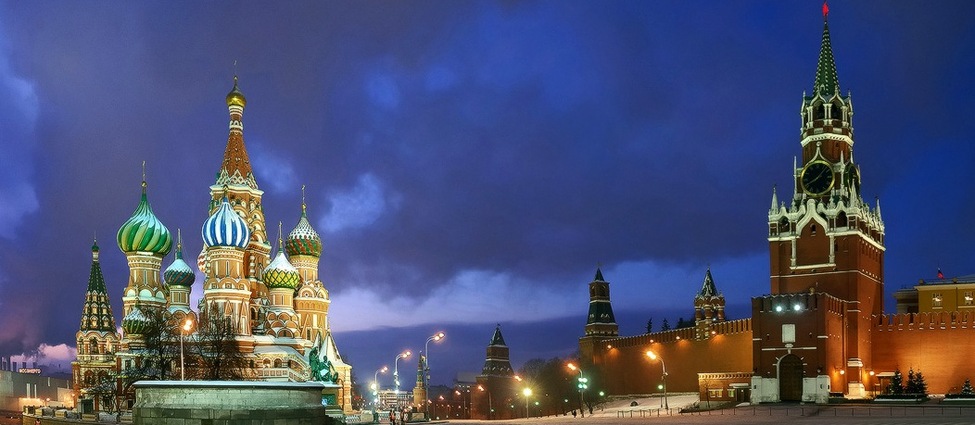

News

Virtual Business Mission with WTC Trieste, Italy

A week ago, World Trade Center Moscow, together with WTC Trieste conducted a virtual business mission, in which Italian companies presented their products and services to the Russian market. One of the honorary participants in the webinar was the director of the Moscow office of the Italian-Russian Chamber of Commerce (IRCC), Marisa Florio. She spoke about effective business support tools offered by the IRCC, as well as her take on the event in an interview with the WTC press service.
Madame Florio, the main product line was presented and discussed in the framework of the virtual business mission. What other product groups from Italy do you think have a high potential in the Russian market, and what Russian products are in demand in Italy?
MF: As for exports from Italy to Russia, they have been developing for many, many years, and foodstuffs occupy a significant place, of course. There are categories which have fallen under sanctions and cannot be exported to Russia, but thanks to this, a lot of production facilities have opened here, and some of them together with Italian business, with Italian technologies, equipment, and so on.
Therefore, we are pleased to say to Italian manufacturers that it is necessary to further develop the “Made with Italy” format. Much has been done in this direction, especially in the dairy and meat industries. A simple example: dairy products such as burrata, mozzarella are already well produced in Russia, and they will no longer be mainly exported from Italy, and this is good. But there are also products that should be produced in Italy - some of them under sanctions, some not - I will not dwell on them in detail, but for sure - you need to be present on the Russian market.
One of the most effective tools is the international exhibitions - they are very good and they are attended by companies from all over Russia and the CIS countries. You can take part in exhibitions held in Europe.
In Italy we supervise delegations of Russian buyers. Another tool is the organizations promoting business: you are a WTC, we are the IRCC and the Italian Embassy, and we can organize business missions to Russia and Italy with the participation of buyers-importers and manufacturers. There is a market for that. In Russia, Italian products are very much appreciated. And this is not only food, fashion, furniture, which we know well. 40% of our imports in Russia are mechanical engineering. One of the best exhibitions open these days at the site of your partner Expocentre is Agroprodmash. I counted 62 Italian firms participating in it. And even in the aerospace sector, we can do a lot. Therefore, for Italy, Russia is a very important partner. And for Russia we are also important, despite the fact that we are only the 5th in terms of trade. Therefore, despite the sanctions and the political situation in the world we will continue to develop our cooperation.
As for the Russian products in Italy, it is difficult for me to answer precisely now, but I can say for sure - we, as the Italian-Russian Chamber of Commerce, are happy to consider offers from Russian business - we have already done this several times and keep on giving answers. But it is important to keep in mind that the product should be interesting and in demand in Italy, for example, not be made in our country. The issue of certification is also important because it is sometimes difficult to get European certificates. And, of course, prices - they must be competitive. For example, in Russia there are very good designers, but they are insanely expensive. Therefore, it is very difficult for you to compete in fashion. We are ready to consider the business initiative from both the Italian and the Russian side, especially since we have offices in both Moscow and Milan.
In your opinion, do the presenting companies supplying coffee products and wines have a high potential in the Russian market?
MF: I was interested in their presentations. But there are already many different companies in this sector in Moscow today. The high exchange rate does not help either, and I know personally that some importers-distributors, especially in terms of wines, have abandoned some manufacturers and are trying to keep their portfolio rather than acquire new partners because everything has become almost twice as expensive. But Russia is not only Moscow, and now we are trying to develop in other regions more and more. There the market is not yet so saturated, although hard work remains to be done there.
What do you think are the most promising Russian regions?
MF: Of course, it all depends on the sectors and goals. The most promising Russian regions in terms of investment: we are actively working with the Vladimir region, with the Kaluga region - they are not far from Moscow, logistics are developed there, and there is a need for Italian goods and investments. The Kaluga Region began with the automotive industry, and now it is actively developing both the agro-industrial complex and the pharmaceutical industry.
We visited Novosibirsk with delegations together with the embassies of Italy; we were in Yekaterinburg and in the Caucasus many times. For example, Italy is investing in Kabardino-Balkaria - in apple gardens and brick production.
Regions need to develop more, especially million-plus population cities.